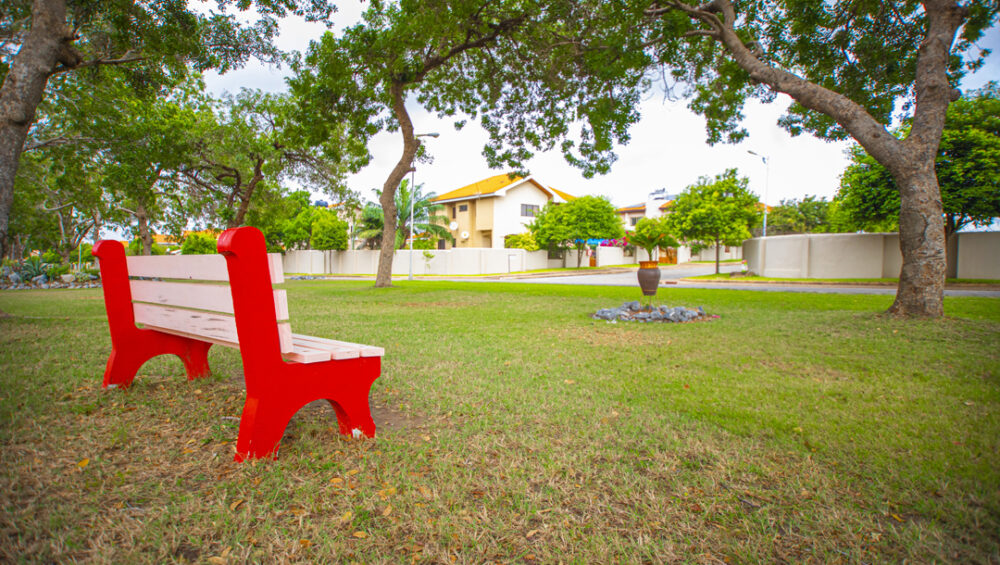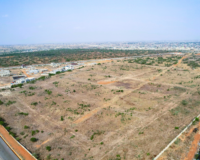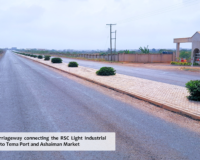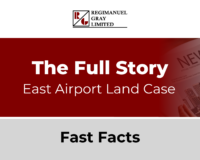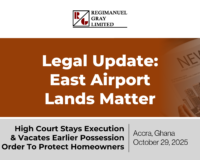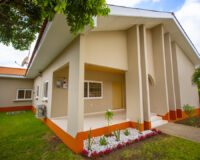Industrial & Commercial Land Near Tema | Serviced Plots at Regimanuel Satellite City
Industrial And Commercial Land | Buying Process and Legal Questions
Buying industrial and commercial land near Tema demands more than location, it requires legal certainty and immediate infrastructure. This guide walks investors through the buying process in Ghana, the documents you must verify, and the legal pitfalls to avoid so you can move from purchase to production with confidence.
How do I purchase industrial and commercial land near Tema – Ghana ?
The purchase process for industrial serviced land for sale near Tema at RSC involves five straightforward steps:
1. Initial Consultation & Site Visit Contact our sales team at +233 (501) 41 9091 or +233 (204) 34 1329 to schedule a site visit. We recommend in-person visits, but virtual tours are available for preliminary assessment.
2. Due Diligence Period Review all infrastructure specifications, title documents, estate management agreements, and permissible industries list. We provide complete transparency with all documentation. You should engage your own independent legal counsel and technical consultants during this phase.
3. Reservation & Agreement Once you’ve completed your due diligence, you’ll sign a Sale Agreement and pay an initial deposit (typically 10-30% depending on negotiated payment terms). This secures your specific plot(s) and prevents sale to other parties.
4. Payment Complete payment according to your agreed schedule. We offer flexible payment plans up to 24 months for qualified buyers. All payments are made to Regimanuel Gray Limited’s official corporate bank accounts only.
5. Title Transfer & Handover Upon final payment, the Land Title Certificate is prepared and registered at the Lands Commission. This typically takes 30-60 days. You receive your registered title, site plans, and all infrastructure connection specifications. You can then begin development immediately.
Average timeline from initial contact to title transfer: 90-120 days (depending on your due diligence pace and payment schedule).
Can foreign nationals or diaspora investors buy industrial and commercial land in Ghana?
Yes, absolutely. Ghana’s investment laws actively encourage foreign participation in commercial and industrial real estate. Here’s what you need to know:
Ownership Structure:
- Foreign nationals can acquire land through leasehold arrangements (typically 50-99 years, renewable)
- The leasehold is fully transferable, inheritable, and can be used as collateral for financing
- 100% foreign ownership of businesses and properties is permitted under GIPC Act 2013
- No Ghanaian partnership or local shareholding is required for industrial land purchases
Legal Requirements:
- Valid passport and proof of identity
- Tax Identification Number (TIN) – we can assist with obtaining this
- No residency requirement – you don’t need to live in Ghana to own industrial land
- No restrictions on profit repatriation from businesses operated on the land
Documentation Provided:
- Registered Land Title Certificate (your legal proof of ownership)
- Site plan and survey documentation
- Infrastructure connection specifications
- Estate management agreement
Important: Regimanuel Gray Limited has served diaspora investors since 1991. We have extensive experience with cross-border transactions and can connect you with reputable immigration lawyers, tax consultants, and banking partners to ensure your purchase complies with both Ghanaian and your home country’s regulations.
What is the land tenure system? Is it leasehold or freehold?
The RSC Light Industrial Enclave operates on a long-term leasehold system (50-99 years, renewable), which is the standard for commercial and industrial land in Ghana, particularly in the Greater Accra Region.
Why Leasehold vs. Freehold: Ghana’s 1992 Constitution vests all land in the Republic, held in trust by traditional authorities, stools, or the state. While “freehold” ownership technically exists, the practical reality in Greater Accra is that all land is held under long-term leases from the original landowners.
What Your Leasehold Provides:
- Full development rights – build any permissible industrial structure
- Transferability – sell, gift, or bequeath the lease to heirs or buyers
- Collateral value – banks accept long-term leaseholds for financing
- Renewable – at lease expiration, you have first right of renewal (standard practice is automatic renewal at nominal ground rent)
- Security – Regimanuel Gray Limited has clear title from original landowners with no competing claims
Ground Rent: Minimal annual ground rent (typically $50-200 per acre annually) is payable to the original landowners. This is standard practice and is factored into our estate management structure.
Title Registration: All leases are registered at the Lands Commission and carry full legal protection. Your title is searchable in the public registry, providing transparency and preventing fraud.
Critical Advantage: Because Regimanuel Gray Limited purchased this land in 2011 and has been developing it for over a decade, all boundary disputes, competing claims, and traditional authority negotiations have already been resolved. You’re buying into a clean, registered, dispute-free title system – not bare land with uncertain ownership.
Are there any hidden costs or additional fees after purchasing?
Transparency is critical to our business model. Here’s a complete breakdown of all costs:
UPFRONT COSTS (One-Time):
- Land Purchase Price: $250,000 per acre (negotiable for multi-acre purchases)
- Legal & Registration Fees: Approximately 3-5% of purchase price
- Lands Commission registration fees
- Land title preparation
- Stamp duty
- Your legal counsel fees (we recommend independent counsel)
- Survey & Site Demarcation: Approximately $2,000-3,500
- Physical site beacons installed
- Detailed survey plan preparation
- GPS coordinates documentation
ANNUAL ONGOING COSTS:
- Estate Management Fees: $2,500-4,000 per acre annually
- Road and drainage maintenance
- Security coordination for public areas
- Street lighting and common utilities
- Landscaping and environmental management
- Administrative support for EPA coordination
- Note: This is FAR lower than the operational disruptions and ad-hoc repairs you’d face with unmanaged industrial land
- Ground Rent: $50-200 per acre annually (paid to original landowners)
- Property Tax: Assessed by local assembly based on property value
- Typically 0.5-1% of assessed land value annually
- Payable to Adentan Municipal Assembly
DEVELOPMENT PHASE COSTS (When You Build):
These are YOUR costs for constructing your facility (NOT paid to Regimanuel Gray):
- Architectural and engineering design
- Building permits and EPA certification
- Construction costs
- Final utility connections (you pay ECG/GWC for final meters and connections)
- Security infrastructure for your premises (fencing, CCTV, etc.)
WHAT’S INCLUDED IN YOUR PURCHASE PRICE (No Additional Cost):
✓ Power infrastructure to plot boundary
✓ Water infrastructure to plot boundary
✓ Paved road access
✓ Underground drainage system
✓ Registered land title
✓ Estate management during holding period
✓ Access to RSC road network
WHAT YOU WILL NEVER PAY:
- No “facilitation fees” to traditional authorities
- No bribes or unofficial payments
- No surprise infrastructure levies
- No retroactive charges
Our 34-year reputation is built on transparent, predictable costs. Every fee has documentation and official receipts.
How secure is the land title? Are there any ownership disputes?
Extremely secure – and this is one of our strongest competitive advantages.
Land disputes are unfortunately common in Ghana, particularly with speculative land purchases from small-scale dealers or individual landowners. The RSC Light Industrial Enclave has ZERO pending disputes and NO LITIGATION.
Why Our Titles Are Dispute-Free:
- Established Ownership Since 2011
- Regimanuel Gray Limited acquired this land over 13 years ago
- All boundary demarcations have been settled
- Traditional authority negotiations completed long ago
- Neighboring landowners acknowledge our boundaries
- Registered at Lands Commission
- Full title registration (not just site plans)
- Searchable in public registry
- Professional surveyors engaged for all demarcations
- GPS coordinates documented
- Infrastructure Investment Confirms Title
- We’ve invested over $15 million in roads, power, water, drainage
- No rational investor makes this investment without clear title
- Physical infrastructure serves as visible proof of legitimate ownership
- 34-Year Track Record
- Regimanuel Gray has developed 3,250 acres across Ghana since 1991
- ZERO successful title challenges against any RGL development
- East Airport Estate (completed 2005) has 20+ years of clean title history
- We know how to secure land properly
Due Diligence You Can Conduct:
- Lands Commission Search – Verify our title registration independently
- Site Inspection – Physical infrastructure proves long-term ownership
- Neighboring Developer Verification – Speak to other developers in the area about boundary clarity
- Legal Counsel Review – Any reputable Ghanaian property lawyer can verify our title documents
Title Insurance: While not common in Ghana, we can connect you with international title insurance providers if you require additional protection (typically used by large institutional investors).
Our Guarantee: If any legitimate title challenge emerges after your purchase (which has NEVER happened in our history), Regimanuel Gray Limited will defend the title at our expense and provide full legal support. This commitment is written into our Sale Agreements.
LOCATION & INFRASTRUCTURE
How far is the Industrial and Commercial Land at RSC from Tema Port?
Current Distance & Drive Time:
- Straight-line distance: 25 kilometers from RSC to Tema Port
- Current drive time: 40-50 minutes via Katamanso-Ashaiman route (depending on traffic)
- Peak hour drive time: 55-65 minutes (morning/evening rush)
Post-Dual Carriageway Completion (Expected 2025-2026):
- Projected drive time: 20-25 minutes via new Adenta-Dodowa dual carriageway connecting to existing Tema routes
- Peak hour drive time: 30-35 minutes (improved traffic flow)
- Freight truck access: Significantly improved with dual-lane highways reducing congestion
Route Options:
- Primary Route (Post-2026): RSC → Adenta Barrier (via dual carriageway) → Tema Motorway → Tema Port
- Advantages: High-speed dual carriageway, minimal traffic lights, heavy vehicle-friendly
- Alternative Route: RSC → Katamanso → Ashaiman → Tema Port
- Advantages: Direct route to Tema industrial area, multiple access points
- Currently preferred by freight operators familiar with Ashaiman market
Why This Distance Is Optimal:
Logistics studies show that 20-30km from major ports is the “sweet spot” for industrial land:
- Too close (<10km): Land prices are 3-4x higher, congestion impacts operations, limited expansion space
- Too far (>40km): Freight costs increase 3-5% per 10km, time-sensitive operations become challenging
- RSC at 25km: Optimal balance of affordability, logistics efficiency, and operational flexibility
Container Logistics:
- Average cost per 20-foot container from Tema to RSC: $150-200 (current)
- Projected cost post-dual carriageway: $100-150 (improved route efficiency)
- Compare to: Accra CBD locations pay $80-120 but land costs $500K-1M+ per acre
Practical Example: A food processing facility at RSC can receive a 40-foot refrigerated container from Tema Port, clear it through customs, and have it at their facility within 3-4 hours total (post-2026). This is comparable to industrial parks in Lagos, Nairobi, or Abidjan – but at a fraction of the land cost.
What infrastructure is ACTUALLY in place right now? Is construction complete?
This is perhaps the most critical question for serious buyers. Let’s be completely transparent:
FULLY COMPLETED & OPERATIONAL (As of November 2024):
Power Infrastructure:
- 33KVA substation within 2km of Light Industrial Enclave (operational)
- 11KVA distribution lines to enclave boundaries (installed by ECG)
- 3-5KVA supply points at plot perimeters (ready for connection)
- National grid connection with relatively stable supply (average 95%+ uptime)
Water Supply:
- 250mm HDPE main connection to Ghana Water Company substation (operational)
- 150mm HDPE distribution lines throughout enclave (installed)
- 60mm arterial connections to each plot boundary (ready for metering)
- Flow-tested and pressure-verified by GWC engineers
Road Network:
- 10.5km Amanfrom-Katamanso-Zenu dual carriageway COMPLETED (opened 2023)
- Internal enclave roads: Paved asphalt roads completed for 70% of enclave
- Heavy vehicle specifications (40-ton capacity)
- All-weather access guaranteed
Drainage System:
- Underground drainage network installed for 70% of enclave
- Stormwater management system operational
- Connection points at plot boundaries
- Tested during 2023-2024 rainy seasons (no flooding incidents)
IN PROGRESS (Completion Timeline):
Remaining Internal Roads: 30% of internal enclave roads scheduled for completion by Q4 2025
- Does NOT affect early plot buyers who can access their plots via completed roads
- Phase-by-phase completion as plots are sold
Adenta-Dodowa Dual Carriageway: Government project, expected completion 2025-2026
- This is NOT under RGL control but is a Ministry of Roads & Highways priority project
- Current status: Major sections under active construction
- Impact: Improves access but doesn’t affect current plot usability
VERIFICATION:
- We encourage site visits to verify all infrastructure claims
- Physical infrastructure is visible and testable
- We provide technical specifications documents
- Independent engineers can inspect and verify all installations
Critical Distinction: Unlike most “planned” industrial developments that sell bare land with promises of future infrastructure, RSC’s infrastructure is installed FIRST, then we sell plots. This is our proven development model since 1991.
What You Must Still Do: Once you purchase your plot, YOU are responsible for:
- Final power meter installation and connection (coordinate with ECG)
- Final water meter installation (coordinate with GWC)
- Building construction
- Your facility’s internal utilities
- Perimeter security for your premises
Estimated Timeline From Purchase to Operational:
- Title transfer: 30-60 days post-payment
- EPA permit (for standard industries): 3-6 months concurrent process
- Construction: 6-18 months depending on facility type
- Total: 9-24 months from purchase to operational facility
Is the area prone to flooding? What about drainage during heavy rains?
Critical environmental question – here’s the technical reality:
Topography Analysis:
- RSC site elevation: Maximum 8 meters above sea level
- Terrain: Gently undulating with natural drainage gradients
- No low-lying flood plains within the Light Industrial Enclave
- Natural slope facilitates water runoff toward designated drainage channels
Rainfall Patterns: Ghana’s dual rainfall maxima (April-June and September-November) brings 900-1,200mm annually in the Greater Accra Region. The RSC infrastructure is designed for peak rainfall events (100mm+ in 24 hours).
Drainage Infrastructure:
- Underground Drainage System:
- Engineered concrete culverts and drainage channels
- Sized for 1-in-20-year rainfall events
- Primary drains: 600mm-900mm diameter
- Secondary drains: 300mm-450mm diameter
- Outlet channels discharge to designated water courses
- Stormwater Management:
- Roadside channels capture surface runoff
- Plot-level connection points for industrial wastewater (after EPA-compliant treatment)
- Sediment traps prevent drain blockages
- Regular maintenance by RG Estate Management
Performance Verification:
- 2023 Rainy Season: No flooding incidents reported despite 120mm rainfall in single 48-hour period
- 2024 Rainy Season: Zero operational disruptions from water accumulation
- Comparison: Nearby Ashaiman and parts of Tema industrial areas experienced localized flooding – RSC did not
Industrial Wastewater Considerations: If your facility generates industrial wastewater (food processing, textile dyeing, etc.):
- You MUST install EPA-approved pre-treatment systems
- Treated water can connect to RSC drainage (coordination with estate management required)
- Specialized waste (chemicals, heavy metals) requires licensed disposal – NOT discharged to drains
- EPA will inspect your treatment systems during certification
Site-Specific Assessment: We provide detailed topographic surveys for each plot showing:
- Elevation at all corners
- Natural drainage direction
- Recommended building pad levels
- Drainage connection points
Risk Mitigation Recommendations: For investors especially concerned about flooding (e.g., temperature-sensitive warehousing, electronics manufacturing):
- Request plots on elevated sections (we can advise on optimal locations)
- Design building pads 0.5-1.0m above natural ground level
- Install perimeter drains around your facility
- Include sump pumps in below-ground facilities (if any)
Climate Adaptation: Ghana’s climate is relatively stable, but RGL is proactive:
- Tree planting along roads (10,000+ trees planned) improves microclimate and reduces runoff velocity
- Green spaces serve as natural infiltration zones
- Drainage system oversized by 20% to accommodate potential climate variability
Bottom Line: Flooding risk at RSC is significantly LOWER than comparable industrial areas in Greater Accra due to careful site selection, engineered drainage, and proven performance over 3+ rainy seasons.
FINANCIAL & INVESTMENT QUESTIONS
What is the total cost breakdown to get from land purchase to operational facility?
Excellent question – here’s a realistic financial model for a standard 1-acre warehousing/light manufacturing facility:
PHASE 1: LAND ACQUISITION
Item | Cost (USD) | Timeline |
|---|---|---|
Land Purchase (1 acre) | $250,000 | Day 1 |
Legal & Registration Fees | $10,000 | Months 1-2 |
Survey & Demarcation | $2,500 | Month 2 |
SUBTOTAL | $262,500 | 2 months |
PHASE 2: REGULATORY & PLANNING
Item | Cost (USD) | Timeline |
|---|---|---|
EPA Permit Application | $5,000-8,000 | Months 2-6 |
Architectural Design | $8,000-15,000 | Months 2-4 |
Engineering Design (structural, MEP) | $10,000-18,000 | Months 3-5 |
Building Permit | $3,000-5,000 | Month 5-6 |
SUBTOTAL | $26,000-46,000 | 6 months |
Note: EPA and design work run concurrently with land acquisition
PHASE 3: CONSTRUCTION
Costs vary significantly by facility type – here are three scenarios:
SCENARIO A: Basic Warehouse (5,000 sqm)
- Steel structure with metal cladding
- Concrete floor slab
- Basic utilities (lighting, power distribution)
- Office area (500 sqm)
- Security fencing
- Construction Cost: $400,000-550,000
- Timeline: 8-10 months
SCENARIO B: Light Manufacturing Facility (3,500 sqm)
- Mixed steel/concrete structure
- Industrial floor with heavy load capacity
- 3-phase power distribution, backup generator
- Water treatment system
- Office and worker facilities (800 sqm)
- Construction Cost: $550,000-750,000
- Timeline: 10-14 months
SCENARIO C: Food Processing Plant (2,500 sqm)
- Concrete structure with specialized finishes
- Temperature-controlled zones
- Industrial-grade HVAC
- Water treatment and wastewater system
- Quality control lab (200 sqm)
- Loading docks and cold storage
- Construction Cost: $700,000-950,000
- Timeline: 12-16 months
PHASE 4: UTILITIES & FINAL CONNECTIONS
Item | Cost (USD) | Timeline |
|---|---|---|
ECG Power Connection & Meters | $5,000-12,000 | Months 10-12 |
GWC Water Connection & Meters | $3,000-6,000 | Months 10-12 |
Backup Generator (if needed) | $15,000-45,000 | Month 11-12 |
Security Systems (CCTV, access control) | $8,000-20,000 | Month 12 |
SUBTOTAL | $31,000-83,000 | 2-3 months |
TOTAL INVESTMENT SUMMARY (1-Acre Facility):
Facility Type | Total Cost Range | Time to Operational |
|---|---|---|
Basic Warehouse | $720,000 – $940,000 | 12-14 months |
Light Manufacturing | $870,000 – $1,140,000 | 14-18 months |
Food Processing | $1,020,000 – $1,330,000 | 16-20 months |
ANNUAL OPERATING COSTS (After Opening):
- Estate Management Fees: $3,500/acre
- Property Tax: $2,500-4,000
- Security (if outsourced): $12,000-18,000
- Utilities (highly variable by operations): $24,000-120,000+
- Maintenance & Repairs: $15,000-35,000
FINANCING OPTIONS:
Most diaspora investors self-finance land acquisition, then seek financing for construction:
- Local Banks: Offer construction financing at 18-24% interest (high due to Ghana’s monetary policy rates)
- Require 30-40% equity contribution
- Loan-to-value: 60-70%
- Term: 5-10 years
- Development Finance Institutions (DFIs):
- IFC, AfDB, DEG (German DFI) offer lower rates (8-14%) for manufacturing aligned with AfCFTA goals
- Requirements: Detailed business plan, job creation projections, export orientation
- Minimum project size: Usually $2M+
- Home Country Financing:
- Some diaspora investors secure mortgages/business loans in their country of residence (US, UK, etc.)
- Interest rates: 6-12% (much lower than Ghana)
- Challenge: Foreign banks less familiar with Ghana; may require higher equity
RETURN ON INVESTMENT TIMELINES:
- Lease Model: Leasing warehouse space at $10-18/sqm annually = $50,000-90,000 annual income on 5,000sqm. Payback: 8-12 years
- Manufacturing Operations: Highly variable by industry, but AfCFTA-aligned export operations typically target 15-25% ROI annually
- Land Appreciation: Historical appreciation in RGL developments: 8-15% annually. Land value alone could appreciate $20,000-37,500 per year
COST REDUCTION STRATEGIES:
- Phased Construction: Build 50% of planned space initially, expand later as demand grows
- Pre-Engineered Buildings: Steel structures from China/Turkey reduce construction costs by 20-30%
- Shared Services: Multiple investors can co-develop shared infrastructure (e.g., backup generator, water treatment)
- Tax Incentives: GIPC offers tax holidays for manufacturing (5-10 years depending on location and sector)
Can I get a payment plan for the land, or must I pay the full $250,000 upfront?
Yes, flexible payment plans are available – and this is one of our key competitive advantages for diaspora investors.
STANDARD PAYMENT PLANS:
Option 1: 30% Deposit Plan (Most Popular)
- Initial Deposit: 30% ($75,000 on $250K purchase)
- Balance: Paid in equal monthly installments over 18-24 months
- Interest: 0-3% (negotiable based on buyer profile and installment period)
- Title Transfer: Upon final payment OR upon reaching 70% payment (with agreement)
Option 2: 40% Deposit Plan (Faster Processing)
- Initial Deposit: 40% ($100,000)
- Balance: Paid over 12-18 months
- Interest: 0% (interest-free if completed within 12 months)
- Title Transfer: Upon 70% payment completion
- Advantage: Earlier site access for planning, EPA applications can begin sooner
Option 3: 50% Deposit Plan (Immediate Site Access)
- Initial Deposit: 50% ($125,000)
- Balance: Paid over 6-12 months
- Interest: 0%
- Title Transfer: Upon 60% payment
- Advantage: You can begin EPA applications, site surveys, and preliminary planning immediately
MULTI-ACRE PURCHASE INCENTIVES:
For purchases of 2+ acres, we offer enhanced terms:
- 2 Acres: 5% discount ($475,000 instead of $500,000) + extended payment terms (up to 30 months)
- 3-5 Acres: 8% discount + up to 36-month payment plan
- 5+ Acres: Custom negotiation – contact our Directors directly for institutional investor terms
EARLY PAYMENT INCENTIVES:
- Complete payment within 6 months: 2% discount on remaining balance
- Pay full amount upfront: 3-5% discount (varies by plot location and size)
WHAT YOU CAN DO DURING PAYMENT PERIOD:
Even before final payment and title transfer: ✓ Site Visits: Unlimited access to your plot for planning ✓ EPA Application: Begin Environmental Impact Assessment process ✓ Design Work: Engage architects and engineers to design your facility ✓ Soil Testing: Conduct geotechnical surveys ✓ Pre-Construction Planning: Secure contractor quotes, order long-lead equipment
✗ Cannot Do: Begin physical construction until at least 70% payment + signed agreement
PAYMENT METHODS:
- Bank Transfer: Direct transfer to RGL corporate accounts (USD or GHS equivalent)
- Preferred method for large amounts
- Full documentation provided for each transaction
- Escrow Arrangements: For investors requiring additional security
- Third-party escrow (we work with reputable firms like KPMG Ghana, PwC)
- Funds held until title documentation verified
- Additional cost: 0.5-1% of purchase price
- In-Person Cash Payments: Not recommended for amounts over $10,000 due to banking regulations
PAYMENT SCHEDULE EXAMPLE (1 Acre, 30% Deposit, 24-Month Plan):
Payment | Amount | Due Date |
|---|---|---|
Deposit | $75,000 | Contract Signing |
Monthly Installment | $7,500 | Months 1-23 |
Final Payment | $7,500 | Month 24 |
TOTAL | $250,000 | 24 months |
PROTECTION MECHANISMS:
- Escrow Option: Your payments held in escrow until title verified
- Site Reservation: Plot physically marked and reserved in your name after deposit
- Regular Updates: Monthly progress reports on enclave development
- Refund Policy: If RGL fails to deliver clear title for reasons within our control, full refund with 5% interest (has never happened in our 34-year history)
QUALIFICATION REQUIREMENTS:
- Valid identification (passport for foreign nationals)
- Proof of funds or income documentation
- Clear purpose statement (intended use of land)
- Reference letters (for extended payment plans over 24 months)
INSTITUTIONAL BUYERS:
For companies, NGOs, or investment funds:
- Separate negotiation process
- Can structure as corporate lease-to-own
- Possible partnership arrangements (we’ve partnered with SSNIT, international investors previously)
- Contact: Direct line to RGL Directors for institutional discussions
NO HIDDEN PENALTIES:
- No prepayment penalties (you can accelerate payment schedule anytime)
- No balloon payments (equal installments throughout)
- No variable interest rates (locked in at signing)
Bottom Line: We understand diaspora investors often need time to arrange foreign currency transfers, liquidate assets, or coordinate with business partners. Our payment plans are designed to make this investment accessible while protecting both parties’ interests.
How does the RSC Industrial and Commercial Land compare to other industrial land options in Greater Accra?
This is where hard data matters. Let’s compare RSC to major alternatives:
COMPARISON 1: RSC Light Industrial Enclave vs. Tema Industrial Area
Factor | RSC Light Industrial Enclave | Tema Industrial Area |
|---|---|---|
Price Per Acre | $180,000 – $250,000 per acre | $450,000 – $700,000 per acre |
Infrastructure Status | Fully serviced (power, water, roads, drainage) | Fully serviced but aging (40+ years old) |
Available Land | Hundreds of acres available | <10 acres available (mostly sold out) |
Estate Management | Professional management included | Unmanaged (individual responsibility) |
Port Distance | 25km | 2 – 8km |
Expansion Potential | High (large contiguous plots available) | None (constrained by existing development) |
Environmental Standards | Modern EPA compliance required upfront | Mixed (older facilities grandfathered) |
Traffic Congestion | Low (new road network) | Severe (40+ years of industrial traffic) |
VERDICT: Tema offers proximity but at 2 – 3x the cost, no expansion space, aging infrastructure, and severe congestion. RSC offers better value unless your operation absolutely requires sub-10km port proximity.
COMPARISON 2: RSC vs. Prampram Free Zones Enclave (GFZE Alternative)
Factor | RSC Light Industrial Enclave | Prampram GFZE |
|---|---|---|
Price Per Acre | $180,000 – $250,000 per acre | $200,000 – $280,000 per acre(varies by zone) |
Tax Incentives | Standard GIPC + AfCFTA Tarrif-free incentives | Enhanced Free Zone incentives (10-year tax holiday) |
Port Distance | 25km to Tema | 35 – 40km to Tema |
Infrastructure Status | Completed (power, water, roads) | Partially completed (varies by zone) |
Workforce Access | 792,000+ within 10km | <100,000 within 10km (rural area) |
Market Access | Direct access to Accra (2.5m consumers) | 45 – 60 min to Accra markets |
Free Zone Restrictions | None (operate flexibly) | Must export 70%+ of production to qualify |
Estate Management | Included | Limited management |
VERDICT: If you qualify for Free Zone status and have export-heavy operations (70%+ export orientation), Prampram offers tax advantages. If you need local market access or flexible domestic/export mix, RSC is superior. Workforce availability heavily favors RSC.
COMPARISON 3: RSC vs. “Bare Land” Offers (Unserviced Options)
Example: Ashaiman, Katamanso, Dodowa outskirts
Factor | RSC Light Industrial Enclave | Typical Bare Land |
|---|---|---|
Advertised Price | $180,000 – $250,000 per acre | $120,000 – $180,000 per acre |
Infrastructure Included | Yes (all utilities to boundary) | No |
Cost to Connect Power | Included | $45,000 – $75,000 + 12 – 18 month wait |
Cost to Drill Borehole/Water | Included (GWC mainline) | $25,000 – $40,000 |
Road Construction to Plot | Included (paved access) | $30,000 – $50,000 |
Drainage System | Included (underground) | $15,000 – $25,000 or flood risk |
Title Risk | Minimal (34-year track record) | High (boundary disputes common) |
Estate Management | Included ($3,500/year) | None (depreciation risk) |
Time to Operational Status | 3 – 6 months post-purchase | 18 – 24 months post-purchase |
TOTAL REAL COST | $250,000 | $255,000 – $390,000 |
VERDICT: “Cheap” bare land is expensive once you factor in infrastructure installation, time delays, and title risks. RSC actually costs LESS on a total-cost-to-operational basis.
COMPARISON 4: RSC vs. Spintex Road/Teshie-Nungua Industrial Corridor
Factor | RSC Light Industrial Enclave | Spintex/Teshie-Nungua |
|---|---|---|
Price Per Acre | $250,000 | $350,000 – $550,000 |
Infrastructure Status | Fully serviced, new | Fully serviced, established |
Port Distance | 23km | 15 – 18km |
Airport Distance | 19km | 8 – 12km |
Traffic Congestion | Low (new road network) | Severe (residential/industrial mix) |
Expansion Potential | High (multi-acre plots available) | Low (1-2 acre max, fragmented) |
Neighborhood Type | Dedicated industrial enclave | Mixed residential/industrial |
Heavy Vehicle Access | Unrestricted, designed for 40-ton trucks | Restricted in residential areas |
Estate Management | Professional management | Unmanaged |
Land Availability | Hundreds of acres | <50 acres total (mostly sold) |
VERDICT: Spintex offers better airport proximity but at 40 – 120% premium pricing, with severe congestion and limited expansion options. If your operations require frequent air freight or executive travel, Spintex has advantages. For pure logistics/manufacturing scale, RSC is superior.
COMPARISON 5: RSC vs. Nsawam/Suhum (Eastern Region Industrial Options)
Factor | RSC Light Industrial Enclave | Nsawam/Suhum Area |
|---|---|---|
Price Per Acre | $250,000 | $80,000 – $150,000 |
Infrastructure Status | Fully serviced | Minimal (power available, limited water) |
Port Distance | 25km | 65 – 80km |
Workforce Access | 792,000+ within 10km | <150,000 within 20km |
Raw Materials Access | 50km to Eastern Region farms | Direct access to agricultural zones |
Market Access (Accra) | 10km to Accra East suburbs | 40 – 50km to Accra |
Logistics Costs | Moderate | High (long haulage distances) |
Land Size Options | 1+ acres | 5 – 50+ acres (large plots available) |
VERDICT: If your operation is agricultural processing with minimal need for Accra market access or port logistics, Nsawam offers significant cost savings and raw material proximity. For manufacturing requiring port access, workforce, or consumer market proximity, RSC is far superior despite higher land cost.
RSC’S UNIQUE ADVANTAGES (Not Available Elsewhere):
- Managed Industrial Community Model – Only industrial enclave in Greater Accra with professional estate management (prevents neighborhood degradation)
- Dual Carriageway Transformation – Only location benefiting from TWO major highway projects (10.5km completed, Adenta-Dodowa in progress)
- AfCFTA Strategic Positioning – Optimal balance of port access, workforce, market proximity, and cost
- Proven Developer Track Record – 34 years, 3,250 acres developed, zero title disputes in history
- Flexible Payment Plans – Up to 24-month payment schedules (most alternatives require 50%+ upfront)
- Integrated Residential Community – Adjacent 17,000-home Regimanuel Satellite City provides workforce housing (competitors lack this)
WHO SHOULD CHOOSE RSC OVER ALTERNATIVES:
- Manufacturing operations requiring skilled workforce, port access, and market proximity
- Warehousing/logistics operations serving Greater Accra region
- Food processing facilities needing both agricultural raw materials (Eastern Region) and consumer markets (Accra)
- Technology/pharmaceutical operations requiring professional environment and quality infrastructure
- Diaspora investors who need transparent processes, clear titles, and managed environments
- Businesses targeting AfCFTA export markets while maintaining domestic market flexibility
WHO SHOULD CONSIDER ALTERNATIVES:
- Operations requiring sub-10km port proximity (consider Tema, despite high cost)
- Pure export operations (70%+ export) where Free Zone tax advantages outweigh location benefits (consider Prampram GFZE)
- Agricultural processing with zero Accra market need (consider Nsawam/Eastern Region)
- Operations with extreme airport dependency (consider Spintex, despite congestion)
What are the tax implications for foreign investors operating businesses on this land?
Ghana’s tax regime for industrial/commercial operations is relatively transparent. Here’s what you need to know:
CORPORATE INCOME TAX:
- Standard Rate: 25% on chargeable income (profits)
- Free Zone Enterprises: 0% for first 10 years, then 8% thereafter (requires 70%+ export orientation and Free Zone registration)
- GIPC-Registered Manufacturing: Potential tax holidays of 5 – 7 years depending on location and sector (Greater Accra typically qualifies for 5 years)
Important: The RSC Light Industrial Enclave is NOT a Free Zone, but individual companies can apply for GIPC incentives based on their operations.
VALUE ADDED TAX (VAT):
- Standard Rate: 15% (12.5% VAT + 2.5% NHIL + GETFund levy)
- Exports: Zero-rated (you don’t charge VAT, but can reclaim input VAT)
- Manufacturing Inputs: Some raw materials and machinery imports are VAT-exempt or zero-rated
- Registration Threshold: Mandatory if annual turnover exceeds GHS 200,000 (~$13,500)
WITHHOLDING TAX (Relevance for Foreign Investors):
If you’re a non-resident receiving income from Ghana:
- Dividends: 8% withholding tax
- Interest: 8% withholding tax
- Management Fees: 20% withholding tax (if paid to non-resident parent company)
- Royalties: 15% withholding tax
Mitigation: Ghana has Double Taxation Agreements (DTAs) with several countries (UK, France, Germany, Netherlands, South Africa, etc.). DTAs can reduce these rates significantly.
PROPERTY TAX:
- Annual Property Tax: Approximately 0.5-1% of assessed property value
- Paid to: Adentan Municipal Assembly
- Assessment: Based on land size and improvements (buildings)
- Example: 1-acre plot with $500K warehouse might attract $3,000-5,000 annual property rate
IMPORT DUTIES (If Importing Equipment/Raw Materials):
- Machinery for Manufacturing: 0 – 5% duty + 15% VAT (some machinery fully exempt under GIPC incentives)
- Raw Materials: 0 – 10% depending on classification
- Capital Equipment: Often eligible for duty exemptions if GIPC-registered
GIPC can issue import duty exemption certificates for capital equipment and raw materials for the first 3 – 5 years of operations.
EMPLOYMENT TAXES:
If you hire local staff:
- Employee Income Tax (PAYE): Progressive rates 0-30% (employer withholds and remits)
- Social Security (SSNIT): 13% of gross salary (employer pays 13%, employee pays 5.5%)
- Tier 2 & 3 Pensions: 5% employer contribution
CAPITAL GAINS TAX:
- Rate: 15% on gains from sale of land or property
- Exemption: If you hold property for 5+ years, partial exemptions may apply
- Planning: If you structure as corporate entity, can potentially defer through reinvestment
TRANSFER PRICING REGULATIONS:
If your Ghana operation has related-party transactions (e.g., parent company in US/UK):
- Must document transactions at arm’s length prices
- Annual transfer pricing documentation required if turnover exceeds GHS 150M (~$10M)
- Ghana Revenue Authority increasingly scrutinizes related-party transactions
TAX INCENTIVES SPECIFICALLY FOR RSC INVESTORS:
1. Manufacturing Incentives (GIPC):
- Location-based tax holiday: 5 years (Greater Accra qualifies)
- Investment allowance: 75% of capital expenditure deductible in year one
- Carry-forward losses: Up to 5 years
Qualification Requirements:
- Minimum investment: $500,000 for wholly foreign-owned enterprises
- At least 10 Ghanaian employees
- Manufacturing or value-added processing operations
- GIPC registration and compliance
2. Export-Oriented Incentives:
- If you export 30%+ of production: Additional incentives available
- If you export 70%+ of production: Can register as Free Zone Enterprise (10-year tax holiday)
Example Calculation: Food Processing Operation (Year 1)
Revenue: $2,000,000
Cost of Goods Sold: $1,200,000
Operating Expenses: $400,000
Depreciation: $150,000
Taxable Income: $250,000
Tax Scenarios:
Scenario A (No Incentives):
Corporate Tax @ 25% = $62,500
Scenario B (GIPC Manufacturing Incentive – 5-Year Holiday):
Corporate Tax = $0 (Years 1-5)
Scenario C (Free Zone Status – 70%+ Export):
Corporate Tax = $0 (Years 1-10), then $20,000 @ 8% (Year 11+)
TAX PLANNING STRATEGIES:
1. Optimal Entity Structure:
- Limited Liability Company (Local): Subject to standard 25% corporate tax, but easier to operate domestically
- Branch of Foreign Company: Subject to same 25% tax, but can remit profits without dividend withholding
- Free Zone Enterprise: 10-year tax holiday, but must export 70%+
2. Transfer Pricing Optimization:
- If you have related companies in low-tax jurisdictions, structure supply agreements carefully
- Document all transactions thoroughly to defend against GRA challenges
3. Investment Allowance Timing:
- Accelerate capital expenditure in early years to maximize 75% first-year deduction
- Purchase machinery before end of tax year to claim allowances
4. Employee vs. Contractor:
- Contractors: 15% withholding tax only
- Employees: Full PAYE + SSNIT (18.5% total cost)
- Strategic mix can reduce tax burden
5. VAT Recovery:
- Register for VAT immediately to reclaim input VAT on construction and equipment
- Even if not yet operational, registration allows VAT refunds
COMPLIANCE REQUIREMENTS:
Annual Filings:
- Corporate tax return (within 4 months of year-end)
- Audited financial statements (all companies required)
- Transfer pricing documentation (if applicable)
- Annual GIPC compliance report (if incentivized)
Monthly Filings:
- VAT returns (by 15th of following month)
- PAYE and SSNIT remittances (by 15th of following month)
- Withholding tax returns (if applicable)
DOUBLE TAXATION AGREEMENTS:
Ghana has DTAs with:
- UK: Reduces withholding tax on dividends to 5 – 7.5%
- France: Reduces withholding tax on interest to 10%
- Germany, Netherlands, South Africa: Various beneficial rates
- USA: No DTA currently (though both countries offer foreign tax credits)
TAX ADVISORY RECOMMENDATION:
Given complexity, we strongly recommend:
- Engage local tax advisor before starting operations (not after)
- Structure entity appropriately based on your business model (domestic vs. export mix)
- Apply for GIPC incentives during setup phase (cannot apply retroactively)
- Document everything – Ghana Revenue Authority is increasingly sophisticated
Reputable Tax Advisors in Ghana:
- KPMG Ghana
- PwC Ghana
- Deloitte Ghana
- Ernst & Young Ghana
- Local firms: Sam Okudzeto & Associates, Kimathi & Partners
Bottom Line: Foreign investors operating manufacturing/warehousing at RSC can potentially achieve:
- Years 1 – 5: 0% effective corporate tax (GIPC incentives)
- Years 6+: 25% corporate tax
- Total tax burden (including VAT, withholding, property tax): ~30-35% effective rate
This is competitive with other African countries and far more transparent than jurisdictions with lower rates but higher corruption/informal costs.
OPERATIONAL & PERMITTING QUESTIONS
What types of businesses are not allowed in the Light Industrial Enclave?
Critical question – here’s the complete exclusion list and reasoning:
STRICTLY PROHIBITED INDUSTRIES:
1. Heavy Polluting Industries:
- Cement manufacturing plants
- Steel smelting/foundries
- Chemical manufacturing (acids, toxic substances)
- Battery manufacturing/recycling
- Heavy metal processing
- Tanneries (leather processing)
Reason: EPA environmental standards + community impact. These industries require specialized industrial parks with enhanced environmental controls.
2. Hazardous Materials Storage:
- Explosive materials storage
- Ammunition or weapons manufacturing
- Nuclear material handling
- Large-scale petroleum/fuel storage (>50,000 liters)
- Hazardous chemical warehousing
Reason: Safety proximity regulations + insurance liability. Fuel stations are permitted (one already allocated), but bulk petroleum storage requires specialized licensing we don’t provide.
3. High-Nuisance Operations:
- Scrap metal yards
- Auto salvage/dismantling
- Waste sorting/recycling facilities (municipal waste)
- Rendering plants
- Fish processing (open-air drying)
- Slaughterhouses
Reason: Odor, noise, pest attraction, visual impact on neighboring properties. Estate management model requires harmonious industrial mix.
4. Adult Entertainment/Vice Industries:
- Nightclubs/entertainment venues
- Casinos/gambling facilities
- Adult entertainment establishments
- Alcohol production (requires separate licensing and location)
Reason: Incompatible with adjacent residential community (RSC has 17,000 planned homes nearby). Also complicates security and community relations.
5. Certain Agricultural Operations:
- Livestock rearing (cattle, pigs, poultry farms)
- Open-air crop farming
- Aquaculture (fish farming) – due to odor and wastewater concerns
Reason: Odor, noise, and biosecurity concerns. However, agricultural processing (e.g., packaging, grading, cold storage) IS permitted.
RESTRICTED / REQUIRES APPROVAL:
🟡 1. Food Processing with Significant Wastewater:
- Dairy processing
- Beverage production
- Oil extraction
Approval Process: Must demonstrate EPA-compliant wastewater treatment system before approval. Estate management reviews plans to ensure drainage capacity.
🟡 2. Facilities Generating Significant Noise:
- Stone crushing/quarrying
- Heavy machinery manufacturing
- Woodworking with industrial saws
Approval Process: Acoustic impact assessment required. May require sound barriers/operating hour restrictions.
🟡 3. 24/7 High-Traffic Operations:
- Major logistics hubs with 100+ trucks daily
- Distribution centers with night deliveries
Approval Process: Traffic impact assessment required. May need to demonstrate off-peak delivery scheduling to minimize community impact.
FULLY PERMITTED INDUSTRIES (No Special Approval):
Manufacturing & Assembly:
- Pharmaceutical manufacturing
- Medical device assembly
- Electronics/ICT equipment
- Automotive parts manufacturing
- Plastic products manufacturing
- Packaging materials production
- Furniture manufacturing
- Garments/textiles (finished goods)
- Consumer goods assembly
Food Processing (Light/Moderate):
- Fruit/vegetable processing and packaging
- Spice processing and packaging
- Bottled water production
- Bakery products (large-scale)
- Confectionery manufacturing
- Dried food products
Warehousing & Logistics:
- General cargo warehousing
- Cold storage facilities
- E-commerce fulfillment centers
- Distribution hubs
- Freight forwarding offices
Technology & Services:
- Data centers
- Call centers/BPO operations
- Software development offices
- ICT equipment assembly
- Solar panel assembly
Healthcare & Education:
- Medical supply warehousing
- Pharmaceutical distribution
- Medical device storage
- Training centers/technical schools
- Laboratory facilities
Commercial Services:
- Shopping centers/retail
- Showrooms
- Office complexes
- Hotels/conference centers
Specialized:
- Swimming pool construction (Desjoyaux franchise already operates nearby)
- Concrete products manufacturing (light-scale)
- Print production facilities
- Carpentry/joinery workshops (with dust control)
HOW APPROVAL WORKS:
Step 1: Initial Inquiry Contact RGL with your intended business type. We provide preliminary feedback within 48 hours on whether it’s permitted.
Step 2: Formal Application Submit business plan, operational overview, and environmental impact summary. Estate management reviews for compatibility.
Step 3: EPA Coordination For industries requiring EPA permits, we connect you with consultants who’ve successfully processed similar applications.
Step 4: Final Approval Estate management issues written approval. This is included in your Sale Agreement as a condition.
Timeline: 1-2 weeks for clearly permitted industries; 4-6 weeks for restricted industries requiring review.
SPECIAL CASE: MIXED-USE DEVELOPMENTS
Some investors want to develop retail centers, hotels, or office complexes (not pure industrial):
– Permitted in designated commercial zones within the enclave
– Requirements: Must include adequate parking, landscaping, architectural standards review
– Advantage: Access to 792,000+ population within 10km + 17,000 RSC residential community
WHY THESE RESTRICTIONS EXIST:
The managed enclave model is designed to:
- Protect property values – preventing nuisance industries that devalue neighboring properties
- Ensure harmony – compatible industrial uses don’t conflict
- Maintain EPA compliance – pre-screening prevents environmental violations
- Safeguard community – adjacent residential areas require consideration
This benefits YOU as an investor: Your neighbors will also be quality operations, protecting your long-term property value.
ENFORCEMENT:
- Pre-purchase screening: You won’t be sold land if your intended use is prohibited
- Sale Agreement clause: Violation of permitted use allows RGL to initiate repurchase
- Estate management monitoring: Regular inspections ensure compliance
- EPA oversight: Government enforcement for environmental violations
Bottom Line: If your business is manufacturing, warehousing, food processing (with proper wastewater treatment), technology, or commercial services, you’re almost certainly approved. If it’s high-polluting, hazardous, or high-nuisance, you’ll need alternative locations.
How long does the EPA permit process take, and what does it involve?
The Environmental Protection Agency (EPA) permit process is often the biggest concern for first-time industrial investors in Ghana. Here’s the complete roadmap:
TIMELINE OVERVIEW:
Industry Type | EPA Process Duration | Complexity Level |
|---|---|---|
Basic Warehousing | 2 – 3 months | Low |
Light Manufacturing (electronics, assembly) | 3 – 4 months | Low-Moderate |
Food Processing (moderate wastewater) | 4 – 6 months | Moderate |
Pharmaceutical Manufacturing | 6 – 9 months | High |
Chemical Processing | 8 – 12 months | Very High |
THE EPA PERMIT PROCESS (Step-by-Step):
PHASE 1: INITIAL REGISTRATION (Week 1 – 2)
What You Do:
- Submit preliminary project information to EPA
- Provide business registration documents
- Pay registration fee (GHS 500 – 2,000 / ~$35 – $140)
EPA Action:
- Assigns your project to specific officer
- Determines required permit category
- Issues screening questionnaire
RGL Support: We provide template responses and connect you with environmental consultants who’ve successfully processed similar permits.
PHASE 2: ENVIRONMENTAL & SOCIAL IMPACT ASSESSMENT (Weeks 3 – 8)
For Low-Impact Operations (warehousing, light assembly):
- Requirement: Preliminary Environmental Report (PER)
- Preparation Time: 2 – 3 weeks
- Cost: $2,000-4,000 (consultant fees)
- Content: Basic site assessment, waste management plan, community consultation summary
For Moderate-Impact Operations (food processing, manufacturing with emissions/wastewater):
- Requirement: Environmental Impact Statement (EIS)
- Preparation Time: 4 – 6 weeks
- Cost: $5,000 – 12,000 (consultant fees)
- Content: Detailed impact analysis, mitigation measures, monitoring plan, public consultation
For High-Impact Operations (chemical processing, large pharmaceutical plants):
- Requirement: Full Environmental Impact Assessment (EIA)
- Preparation Time: 8 – 12 weeks
- Cost: $15,000-30,000+ (consultant fees)
- Content: Comprehensive study including air quality modeling, groundwater impact, biodiversity assessment, extensive public consultation
What’s Involved:
- Baseline Environmental Study:
- Soil and water quality testing at your plot
- Air quality measurements
- Noise level baseline
- Biodiversity survey (flora/fauna)
- Impact Prediction:
- Operational emissions estimates
- Wastewater generation calculations
- Solid waste projections
- Noise impact modeling
- Mitigation Measures:
- Wastewater treatment system design
- Air pollution control equipment specifications
- Waste management protocols
- Emergency response plans
- Community Consultation:
- Public notice of your project
- Stakeholder meetings (if required)
- Addressing community concerns
RGL’s Role:
- We’ve already completed baseline environmental studies for the entire RSC development
- Your consultant can reference our data, significantly reducing your study costs and timeline
- Estate management provides community consultation support (since we manage broader community relations)
PHASE 3: EPA REVIEW (Weeks 9 – 14)
What Happens:
- EPA technical team reviews your submission
- Site visit by EPA inspectors
- Review of your proposed mitigation measures
- Assessment of your monitoring plans
Common EPA Concerns:
- Wastewater discharge: Must meet EPA effluent standards before connecting to RSC drainage
- Air emissions: Must meet ambient air quality standards
- Noise: Must not exceed 60dB at property boundary during daytime, 50dB at night
- Solid waste: Must have licensed waste disposal contractor
Typical EPA Requests:
- Additional information on specific processes
- Enhanced mitigation measures
- Monitoring equipment specifications
- Training plans for environmental officers
Response Time: You typically have 2-4 weeks to respond to EPA queries. This can extend the process if your initial submission is incomplete.
PHASE 4: PERMIT ISSUANCE (Weeks 15 – 20)
Final Steps:
- EPA issues preliminary permit decision
- You pay permit fees (GHS 5,000-50,000 / ~$350-$3,500 depending on project scale)
- EPA conducts final inspection
- Environmental Permit issued
Permit Validity:
- Initial permit: Usually 2 – 3 years
- Renewable: Submit renewal application 3 months before expiration
- Renewal process: Much simpler (1 – 2 months) if you’ve maintained compliance
ONGOING COMPLIANCE REQUIREMENTS:
After You Receive Your Permit:
Quarterly Monitoring Reports:
- Submit environmental monitoring data (water quality, emissions, waste generation)
- Due within 30 days of quarter-end
- Cost: $500-1,500 per quarter (lab testing + report preparation)
Annual EPA Inspections:
- EPA visits your facility annually
- Reviews compliance with permit conditions
- Issues compliance certificate or corrective action notice
Incident Reporting:
- Any spills, accidents, or exceedances must be reported within 24 hours
- Written incident report within 7 days
Permit Renewal:
- Submit renewal 3 months before expiration
- Demonstrate continued compliance
- Updated monitoring data
COST BREAKDOWN (Typical Food Processing Plant Example):
Item | Cost (USD) | Timeline |
|---|---|---|
EPA Registration | $100 | Week 1 |
Environmental Consultant | $8,000 | Weeks 2 – 8 |
Baseline Studies (soil, water, air testing) | $2,500 | Weeks 3 – 5 |
Community Consultation | $1,500 | Weeks 6 – 7 |
EPA Permit Fee | $2,000 | Week 16 |
TOTAL UPFRONT | $14,100 | 4 – 5 months |
Quarterly Monitoring (ongoing) | $1,000 | Every 3 months |
Annual Renewal Fee | $1,500 | Annually |
COMMON MISTAKES THAT DELAY PERMITS:
Starting Construction Before Permit Approval
- EPA can halt construction and fine you
- Delays permit by 3-6 months while you demonstrate corrective action
Incomplete Wastewater Treatment Design
- EPA will not approve permits without detailed treatment system specifications
- Solution: Engage water treatment engineers during ESIA preparation
Inadequate Community Consultation
- If neighboring communities object, EPA requires additional consultations
- Solution: RGL’s estate management helps facilitate community relations
Using Inexperienced Consultants
- Poorly prepared reports get rejected by EPA, requiring resubmission
- Solution: Use consultants we recommend who’ve successfully processed permits for similar industries
ACCELERATION STRATEGIES:
1. Pre-Land Purchase EPA Consultation
- Contact EPA informally BEFORE buying land to understand specific requirements for your industry
- Saves 2-4 weeks post-purchase
2. Engage Consultant During Land Purchase
- Begin ESIA preparation while land transaction finalizes
- Concurrent timelines save 4-6 weeks
3. Use RGL’s Baseline Data
- Reference our existing environmental studies for RSC
- Reduces your consultant’s field work by 50%, saving time and cost
4. Choose Pre-Approved Technologies
- Use wastewater treatment systems EPA has approved for similar facilities
- Reduces technical review time
5. Attend EPA Stakeholder Forums
- EPA hosts quarterly forums for major investors
- Building relationship with EPA officers smooths process
REPUTABLE ENVIRONMENTAL CONSULTANTS:
We recommend (based on successful track records for industrial permits):
- SGS Ghana – International firm, extensive EPA experience
- Environmental Protection & Management Group (EPM) – Local firm, fast turnaround
- Eco-Logical Consult – Specialized in food processing permits
- HFEC Consult – Strong pharmaceutical/chemical experience
Red Flags:
- Consultants promising “1-month EPA permits” (not realistic for moderate/high-impact industries)
- Consultants suggesting unofficial payments to “speed up” process (illegal and risks your permit)
WHAT IF YOUR PERMIT IS DENIED?
Rare, but possible. EPA denials usually result from:
- Inadequate mitigation measures for high-impact operations
- Community opposition (especially if neighboring residential areas)
- Incompatibility with zoning (not applicable at RSC – we’ve pre-screened)
Appeal Process:
- 30 days to appeal EPA decision to EPA Executive Director
- Must address specific concerns raised in denial
- Can resubmit revised application
RGL’s Role: If EPA denies your permit due to site-specific issues (which hasn’t happened at RSC), we work with you to:
- Relocate to alternative plot within enclave if site-specific
- Provide mediation support if community relations issue
- In extreme cases, explore buyback if project becomes unviable (case-by-case)
BOTTOM LINE:
- Budget: $5,000-15,000 for EPA process (most operations fall in $8,000-12,000 range)
- Timeline: 3-6 months for typical light industrial/food processing operations
- Success Rate: >95% if you use experienced consultants and submit complete applications
- Ongoing Costs: $4,000-6,000 annually for monitoring and renewal
Key Success Factor: Don’t view EPA as obstacle – view as quality assurance. Facilities with proper environmental controls protect your investment, maintain community relations, and ensure operational sustainability.
RGL provides ongoing support, consultant recommendations, and leverages our 34-year relationship with EPA to facilitate (not circumvent) the process.
INFRASTRUCTURE & UTILITIES QUESTIONS
What happens if there are power outages? Is backup power available?
Realistic answer – let’s address the elephant in the room:
Ghana has made significant progress on power stability, but outages still occur. Here’s the honest assessment and mitigation strategies:
CURRENT POWER SITUATION AT RSC (2024):
Grid Stability:
- Average Uptime: 95-97% (approximately 10-15 hours of outages per month)
- Outage Pattern: Mostly brief interruptions (<2 hours), occasional extended outages (4-8 hours) during maintenance
- Worst Periods: April-June (rainy season lightning strikes) and December-February (maintenance season)
RSC-Specific Advantages:
- 33KVA Dedicated Substation: Our proximity to dedicated substation means we’re on priority restoration grid
- New Infrastructure: ECG’s 11KVA distribution lines (installed 2023) reduce local faults
- Managed Response: Estate management coordinates with ECG for faster fault reporting and resolution
Compare to: Industrial areas on older grids (Tema, Spintex) experience 20-25 hours of outages monthly on average.
BACKUP POWER OPTIONS (You Must Provide):
Option 1: Diesel Generator (Most Common)
For 500kW Facility (typical small-medium manufacturing):
- Generator Cost: $45,000-75,000 (new, industrial-grade)
- Installation & Housing: $10,000-15,000 (soundproof enclosure, fuel tank, connections)
- Fuel Consumption: 100-150 liters/hour at full load
- Operating Cost: $100-150/hour (diesel at current prices)
- Maintenance: $5,000-8,000 annually
For 1MW+ Facility (large manufacturing/cold storage):
- Generator Cost: $120,000-200,000
- Installation: $25,000-40,000
- Fuel Consumption: 250-350 liters/hour
- Operating Cost: $250-350/hour
Pros:
- Proven technology, widely serviced in Ghana
- Can handle full facility load
- Relatively quick installation (2-4 weeks)
Cons:
- High operating costs during outages
- Diesel price volatility
- Environmental emissions (EPA requires exhaust treatment)
- Noise (requires soundproofing for estate compliance)
Option 2: Solar + Battery Storage (Increasingly Popular)
For 500kW Facility:
- Solar Array (600kWp): $350,000-500,000
- Battery Storage (500kWh): $200,000-300,000
- Installation & Grid Integration: $50,000-80,000
- Total Investment: $600,000-880,000
Operating Cost: Minimal (solar = free energy, battery maintenance ~$5,000/year)
Payback Period: 5-8 years (depending on grid electricity costs and outage frequency)
Pros:
- Dramatically reduces electricity costs (grid electricity ~$0.15-0.20/kWh vs. solar ~$0.05/kWh over 25 years)
- Environmentally friendly (appeals to international buyers if you’re export-oriented)
- Eligible for GIPC tax incentives (capital equipment deduction)
- Battery provides 4-8 hours backup during outages
Cons:
- High upfront investment
- Solar output varies (Ghana averages 4.5-5.5 sun hours/day)
- Battery replacement every 8-10 years ($150,000-200,000)
Best For: Operations with high daytime power consumption (manufacturing shifts during sunlight hours)
Option 3: Hybrid System (Solar + Generator)
Configuration:
- Solar covers 60-70% of daytime load
- Grid electricity covers remaining + nighttime
- Generator only for emergencies
Cost: $400,000-600,000 (for 500kW facility)
Operating Cost: $15,000-25,000 annually (minimal generator use)
Pros:
- Best of both worlds
- Reduces generator runtime by 80-90%
- Lower fuel costs, better environmental profile
Cons:
- Complex system integration
- Higher initial investment than generator alone
RSC COMMUNITY BACKUP PLANS (Under Discussion):
RGL Estate Management is exploring shared backup solutions:
Concept: Centralized 2 – 5MW backup generator for entire Light Industrial Enclave
- Shared capital cost among plot owners
- Managed by estate management
- Automatic switchover during outages
- Cost: $2,000 – 4,000/plot/year for access
Status: Feasibility study in progress; requires commitment from 15+ plot owners before implementation
Timeline: If sufficient interest, could be operational by 2026
Your Input: Early investors can influence this decision – express interest to estate management
POWER QUALITY ISSUES (Beyond Outages):
Voltage Fluctuations:
- Ghana’s grid experiences voltage swings (±10-15% variation)
- Can damage sensitive equipment (electronics, medical devices, precision machinery)
Solution: Voltage stabilizers/regulators
- Cost: $5,000-15,000 for industrial-grade units
- Essential for: Computer systems, medical equipment, CNC machines, laboratory instruments
Frequency Variations:
- Grid frequency should be 50Hz but occasionally drifts to 48-52Hz
- Affects motor speeds and precision timing equipment
Solution: Frequency converters (for critical equipment only)
- Cost: $8,000-20,000
REALISTIC POWER BUDGET FOR YOUR FACILITY:
Scenario: 3,500 sqm Light Manufacturing Facility
Power Component | Upfront Cost | Annual Operating Cost |
|---|---|---|
ECG Connection (Grid) | $8,000 | $60,000 – 90,000 (electricity bills) |
Diesel Generator (750kW) | $80,000 | $12,000 (fuel + maintenance for ~120 hours/year outages) |
Voltage Stabilizer | $10,000 | $1,500 (maintenance) |
Automatic Transfer Switch | $5,000 | $500 (maintenance) |
Generator Housing & Installation | $15,000 | – |
TOTAL UPFRONT | $118,000 | $74,000/year |
Alternative: Solar Hybrid System
Power Component | Upfront Cost | Annual Operating Cost |
|---|---|---|
ECG Connection | $8,000 | $20,000 – 30,000 (reduced grid reliance) |
Solar Array (600kWp) | $420,000 | $6,000 (cleaning, inverter maintenance) |
Battery Storage (400kWh) | $250,000 | $3,000 (battery maintenance) |
Backup Generator (200kW) | $35,000 | $2,000 (minimal use) |
Installation & Integration | $65,000 | – |
TOTAL UPFRONT | $778,000 | $31,000/year |
Payback: Solar hybrid saves ~$43,000/year = 13-year payback, but provides 25+ year operational life
LESSONS FROM EXISTING RSC OPERATIONS:
Fuel Station (Operational):
- Installed 200kW diesel generator
- Experiences ~10 outages monthly averaging 2 hours each
- Generator runtime: ~20 hours/month
- Monthly fuel cost: ~$3,000
- Their Advice: “Budget for generator from day one – it’s not optional”
Residential Community (17,000 planned homes):
- Individual homes rely on small generators (5-10kW)
- Community exploring shared solar microgrid
- Demonstrates RGL’s commitment to power solutions
POWER INFRASTRUCTURE IMPROVEMENTS (2025-2027):
ECG Major Projects Affecting Accra East:
- Pokuase Bulk Supply Point: 330kV substation (completed 2023) improving overall grid stability
- Additional Substations Planned: 3 new substations in Adentan/Kpone corridor by 2026
- Grid Reinforcement: $150M World Bank project upgrading transmission lines
Expected Impact: Outage frequency should decrease to 5-8 hours/month by 2026-2027
POWER NEGOTIATION WITH ECG:
For Large Consumers (>500kW):
- ECG offers “Special Load Tariff” (SLT) – reduced rates for high-consumption, stable-payment customers
- Typical SLT discount: 10-15% below standard commercial rate
- Eligibility: Minimum 500kW connected load, payment history, power factor correction equipment
How to Apply:
- After 6 months of stable operations
- Submit application to ECG Commercial Department
- Demonstrate consistent monthly consumption >300,000 kWh
RGL Assistance: We can facilitate introductions to ECG Commercial Team for large-scale operations
POWER FACTOR CORRECTION (Technical but Important):
What It Is: Industrial equipment (motors, welding machines, compressors) causes “reactive power” that reduces grid efficiency
ECG Penalty: If your power factor falls below 0.9, ECG charges penalty fees (10-30% surcharge on bills)
Solution: Power factor correction capacitors
- Cost: $10,000-25,000 for industrial facility
- Benefit: Eliminates penalties + qualifies for SLT discounts
- Payback: 6-12 months
Who Needs This: Any facility with heavy motor loads (manufacturing, cold storage, water pumping)
RENEWABLE ENERGY INCENTIVES:
Government Programs:
- Net Metering: Sell excess solar power back to grid at 80% of retail rate (ECG program, limited availability)
- GIPC Tax Incentives: Solar equipment qualifies for accelerated depreciation
- Import Duty Exemption: Solar panels and batteries can enter duty-free under GIPC certification
International Support:
- US Development Finance Corporation (DFC): Provides low-interest loans for solar projects >$2M
- African Development Bank: Renewable energy grants for qualifying projects
- Ghana Energy Commission: Facilitates renewable energy project approvals
POWER STRATEGY RECOMMENDATIONS BY INDUSTRY:
Warehousing/Cold Storage:
- Must Have: Solar + battery + generator hybrid
- Reason: Cannot tolerate outages (perishable goods)
- Priority: Battery storage for uninterrupted cooling during short outages
Light Manufacturing (Electronics, Assembly):
- Minimum: Diesel generator + voltage stabilizer
- Recommended: Solar hybrid for cost reduction
- Priority: Voltage stability (protects sensitive equipment)
Food Processing:
- Must Have: Generator for processing equipment; battery backup for cold storage
- Recommended: Hybrid system for cost efficiency
- Priority: EPA-compliant generator emissions control
Warehousing (Non-Temperature Sensitive):
- Minimum: Small generator for essential systems (security, IT)
- Optional: Full facility backup
- Priority: Cost minimization (outages less critical)
Technology/Data Centers:
- Must Have: N+1 redundant power (grid + generator + battery UPS)
- Recommended: Solar to reduce operating costs
- Priority: 99.9%+ uptime guarantee
FINANCING POWER INFRASTRUCTURE:
Option 1: Self-Finance
- Pay cash upfront (cheapest long-term)
- Claim GIPC capital allowances for tax benefits
Option 2: Equipment Leasing
- Solar Leasing: Companies like SolarTaxi Ghana, Winch Energy offer lease-to-own solar systems
- Terms: 7-10 year leases, monthly payments, system becomes yours after term
- Advantage: No upfront capital, fixed monthly cost
Option 3: Power Purchase Agreements (PPAs)
- Solar developer installs system on your roof at no cost
- You purchase power from them at fixed rate (~$0.12-0.15/kWh)
- Term: 15-20 years
- Advantage: Zero capital outlay
- Disadvantage: You don’t own the asset
Option 4: Bank Financing
- Some Ghanaian banks offer “green energy loans” at 12-16% (lower than standard commercial rates)
- Collateral: The solar equipment itself + your land title
- Term: 5-7 years
EMERGENCY POWER PROTOCOLS (Estate Management):
During Extended Outages (>6 hours):
- Estate management coordinates with ECG for estimated restoration time
- Bulk diesel delivery arranged for facilities needing refueling
- Shared generator access (if community system approved) activated
During Grid Emergencies:
- WhatsApp broadcast to all plot owners with updates
- Coordination with Adentan Municipal Assembly for priority restoration requests
- Technical support for facilities experiencing connection issues
REALISTIC EXPECTATIONS:
What You Should Expect: ✓ 95-97% grid uptime (improving to 98%+ by 2027) ✓ Planned outage notifications 24-48 hours in advance ✓ Faster restoration than average Greater Accra areas (dedicated substation advantage) ✓ Estate management coordination and communication
What You Should NOT Expect: ✗ 100% uninterrupted power without backup systems ✗ Free/subsidized backup power ✗ Voltage/frequency stability without your own stabilization equipment
Bottom Line:
- Plan for backup power from day one – it’s a necessary operational expense, not an optional upgrade
- Budget 10 – 15% of construction cost for power infrastructure (grid connection + backup + stabilization)
- Consider solar hybrid seriously – payback periods are attractive, and Ghana has excellent solar resources (4.5+ sun hours/day year-round)
- RGL cannot provide power – we provide connection infrastructure, but your power security is your responsibility
This transparency is critical: We don’t oversell our capabilities. You need to understand the reality of operating in Ghana and plan accordingly. Successful investors budget realistically and aren’t surprised by power infrastructure requirements.
Is internet connectivity reliable? What about telecommunications infrastructure?
Short Answer: Yes – internet and telecom infrastructure at RSC is among the best in Ghana.
CURRENT CONNECTIVITY STATUS:
Fiber Optic Network: ✓ Multiple Fiber Providers Available:
- Vodafone Ghana: Fiber backbone runs through RSC corridor
- MTN Ghana: Fiber infrastructure to Adentan/Kpone area
- AirtelTigo: Coverage via Adenta exchange
- Busy Internet, Surfline: Independent ISPs with fiber presence
✓ Connection Speeds Available:
- Business Fiber: 10 Mbps to 1 Gbps (dedicated, uncontended)
- Typical Industrial Use: 50-200 Mbps symmetrical
- Latency: 15-25ms to international gateways (excellent for Africa)
✓ Installation Timeline:
- Fiber to premises: 2-4 weeks from application
- Cost: $500-1,500 installation + $100-800/month depending on speed
RELIABILITY METRICS:
Fiber Internet:
- Uptime: 98-99.5% (industry-leading for Ghana)
- Outages: Typically <10 hours/month, mostly brief interruptions
- Redundancy: Multiple submarine cable landings (SAT-3, MainOne, WACS, ACE) reduce single-point failure risk
Compare to:
- Wireless 4G/5G: 95-97% uptime, weather-dependent
- Satellite (e.g., Starlink): 99%+ uptime but higher latency (600ms+), not ideal for real-time applications
Mobile Networks:
- 4G LTE Coverage: Excellent (all major providers)
- 5G Coverage: Limited but expanding (MTN launched 5G in Accra 2023, coverage reaching Adentan/RSC corridor by 2025)
- Voice Call Quality: Excellent (GSM infrastructure mature)
INTERNET COSTS (Business-Grade):
Speed | Provider | Monthly Cost (USD) | Best For |
|---|---|---|---|
10 Mbps | Vodafone/MTN | $80-120 | Small office (5-10 users) |
50 Mbps | Vodafone/MTN | $200-300 | Light manufacturing, warehouse office |
100 Mbps | Vodafone/Busy Internet | $350-500 | Medium operations (50+ users, cloud systems) |
500 Mbps | Vodafone/Surfline | $1,200-1,800 | Data-intensive operations, call centers |
1 Gbps | Vodafone Enterprise | $3,000-4,500 | Data centers, large BPO operations |
Service Level Agreements (SLAs):
- Business packages include 24/7 support
- 4-8 hour response time for outages
- Uptime guarantees: 98-99.5% (with credits for breaches)
TELECOMMUNICATIONS INFRASTRUCTURE:
Fixed Line (Landline):
- Vodafone Business Fixed Line: Available, but declining use (most businesses use VoIP/mobile)
- Cost: $20-40/month + per-minute charges
- Reliability: 95%+ uptime
VoIP (Modern Alternative):
- Internet-based phone systems (e.g., RingCentral, 8×8, local providers)
- Cost: $15-30/user/month
- Advantage: International calling included, mobile app integration, call analytics
- Requirement: Stable internet (50+ Mbps recommended for 20+ concurrent calls)
Mobile Networks at RSC:
- MTN Ghana: Strongest signal, 4G/5G capable
- Vodafone Ghana: Excellent coverage, 4G+
- AirtelTigo: Good coverage, 4G
- Glo Mobile: Adequate coverage, 3G/4G
Corporate Mobile Plans:
- Bulk plans available (20+ lines)
- Typical cost: $10-25/month per line (unlimited local calls + data)
BACKUP CONNECTIVITY (Critical for Resilient Operations):
Strategy: Dual ISP Setup (Highly Recommended)
Primary: Fiber connection (e.g., Vodafone 100 Mbps) Backup: 4G/5G wireless router (e.g., MTN 50 Mbps)
Automatic Failover:
- Install SD-WAN router ($500-1,500)
- Switches to backup if primary fails (1-2 minute transition)
- Email alerts on failover events
Total Cost:
- Primary ISP: $350/month
- Backup 4G: $100/month
- Equipment: $1,000-2,000 one-time
- Total: ~$450-500/month for resilient connectivity
SPECIAL USE CASES:
Data Centers / Cloud Operations:
- Requirement: Multi-homed connectivity (2+ diverse fiber paths)
- Available: Yes – Vodafone and MTN have separate fiber routes to RSC area
- Cost: $5,000-10,000/month for redundant 1Gbps+ links
- Latency: 15-20ms to European clouds (AWS Frankfurt, Azure Amsterdam), 180-220ms to US East Coast
Call Centers / BPO:
- Requirement: Low-latency voice connectivity
- Available: Excellent – fiber + VoIP providers (e.g., Twilio, RingCentral) perform well
- Quality: Voice quality comparable to Kenya/South Africa BPO hubs
- Cost: $20-35/agent/month (VoIP license + bandwidth)
Industrial IoT / Remote Monitoring:
- Requirement: Always-on connectivity, moderate bandwidth
- Solution: 4G/5G with backup (IoT SIM cards from MTN/Vodafone)
- Cost: $10-25/month per device
- Latency: 30-50ms (adequate for most industrial control systems)
Video Conferencing:
- Requirement: 5+ Mbps per concurrent HD video call
- Performance: Excellent on fiber (Zoom, Microsoft Teams, Google Meet perform well)
- Recommendation: 50+ Mbps fiber for offices with regular video conferencing
COMPARISON: RSC vs. Other Industrial Locations
Location | Fiber Availability | Speeds Available | Reliability | Cost (100 Mbps) |
|---|---|---|---|---|
RSC Light Industrial Enclave | ✓ Multiple providers | Up to 1 Gbps | 98-99% | $350-500/mo |
Tema Industrial Area | ✓ Excellent | Up to 1 Gbps | 98-99% | $400-600/mo |
Nsawam/Suhum (Eastern Region) | Limited | Up to 50 Mbps | 95-97% | $300-400/mo |
Prampram Free Zone | ✓ Good | Up to 500 Mbps | 97-98% | $400-550/mo |
Accra CBD | ✓ Excellent | Up to 10 Gbps | 99%+ | $500-800/mo |
RSC Advantage: Comparable connectivity to Accra CBD at 20-30% lower cost, with lower congestion
FUTURE TELECOMMUNICATIONS UPGRADES:
2025-2026 Planned:
- 5G Network Expansion: MTN and Vodafone expanding 5G coverage to Adentan/RSC corridor
- Additional Fiber Routes: AirtelTigo and independent ISPs expanding fiber infrastructure
- Increased Competition: Lower prices expected as more ISPs enter market
Government Initiatives:
- Ghana National Broadband Infrastructure: Government project extending fiber to underserved areas
- Digital Ghana Agenda: Targets 95% national broadband coverage by 2030
PRACTICAL SETUP GUIDE FOR NEW INVESTORS:
Phase 1: Pre-Construction (During Land Purchase)
- Contact multiple ISPs for quotes and site surveys
- Request fiber route maps to confirm serviceability
- Reserve service (many ISPs have waiting lists for new builds)
Phase 2: During Construction
- Install conduits for fiber entry points during foundation work (saves costs later)
- Run internal Cat6/Cat6a cabling to all office areas
- Install server room with climate control (if needed)
Phase 3: Pre-Operational (2-3 Months Before Launch)
- ISP schedules fiber installation (2-4 week lead time)
- Install networking equipment (router, switches, WiFi access points)
- Configure backup connectivity (4G/5G failover)
- Test bandwidth and conduct stress testing
Typical Timeline: 6-8 weeks from first contact to active service
RECOMMENDED CONNECTIVITY VENDORS:
Primary ISP (Fiber):
- Vodafone Ghana Business – Most reliable, excellent support, premium pricing
- MTN Ghana Business – Strong network, competitive pricing, good support
- Surfline Communications – Independent ISP, flexible contracts, tech-savvy support
- Busy Internet – Growing provider, good value, responsive support
Backup/Failover:
- MTN 4G/5G – Strongest mobile network coverage
- Vodafone 4G – Good redundancy if MTN is primary
VoIP Providers:
- RingCentral – International provider, excellent features, $25-35/user/month
- Vodafone One Business – Integrated with fiber, local support
- 8×8 – Cost-effective, good international calling rates
IT Support:
- Inlaks Ghana – Enterprise IT support, 24/7 service
- Kortek Solutions – Local IT firm, industrial experience
- RGL can connect you to reputable IT firms serving other RSC businesses
CYBERSECURITY CONSIDERATIONS:
Common Threats in Ghana:
- Phishing attacks targeting businesses
- Ransomware (increasing in frequency)
- Payment fraud (particularly invoice manipulation)
Essential Security Measures:
- Firewall: Enterprise-grade firewall ($1,000-3,000)
- Antivirus/Endpoint Protection: $30-50/device/year
- VPN for Remote Access: $500-1,500/year
- Email Security: Anti-phishing, anti-spam ($5-10/user/month)
- Employee Training: Cybersecurity awareness (free resources available from Ghana Cyber Security Authority)
Cost: $5,000-10,000 initial setup + $3,000-6,000 annual maintenance
DATA PROTECTION & PRIVACY:
Ghana Data Protection Act (2012):
- Requires businesses collecting personal data to register with Data Protection Commission
- Penalties for data breaches: Up to GHS 5,000,000 (~$350,000)
- Compliance Cost: $2,000-5,000 (registration + policy development + staff training)
Relevant for:
- E-commerce operations
- Call centers/BPO handling customer data
- Healthcare facilities
- Any business with employee records (basic compliance)
BOTTOM LINE:
Connectivity at RSC is excellent and comparable to best areas in Greater Accra: ✓ Multiple fiber providers with up to 1 Gbps speeds ✓ 98-99% uptime reliability ✓ Competitive pricing ($350-500/month for 100 Mbps business fiber) ✓ 4G/5G mobile backup widely available ✓ Future-proof (5G expansion, additional fiber routes planned)
Budget for Connectivity (Typical Industrial Facility):
- Installation: $1,500-3,000 (fiber + internal networking)
- Monthly: $450-600 (primary + backup ISP)
- Annual IT Support: $3,000-8,000
Unlike power (which requires substantial backup investment), internet connectivity at RSC is reliable, affordable, and requires minimal backup infrastructure – a significant operational advantage for technology-dependent businesses.
CONTACT INFORMATION
Ready to invest in prime industrial serviced land for sale near Tema?
Contact Regimanuel Gray Limited Today:
📞 Sales Hotline: +233 (501) 41 9091 | +233 (204) 34 1329
📧 Email: info@regimanuelgray.com
🌐 Website: www.regimanuelgray.com
ADDITIONAL RESOURCES
For More Information:
Government Resources:
- Ghana Investment Promotion Centre (GIPC)
- Environmental Protection Agency (EPA)
- Ghana Revenue Authority (GRA)
- Lands Commission, Ghana
Industry Associations:
Frequently asked questions | Industrial & Commercial Land near Tema
How do I purchase industrial or commercial land near Tema?
Can foreign nationals or diaspora investors buy land in Ghana?
Is land sold as freehold or leasehold?
What additional costs should I budget for besides the land price?
Are there hidden fees or surprise levies after purchase?
How secure are titles and how can I verify them?
How far is industrial land typically from Tema Port and is it suitable for logistics?
What infrastructure should be in place before I buy?
Is the area prone to flooding and what drainage protections are needed?
Can I get a payment plan or do I need to pay in full up front?
Last Updated: November 2025



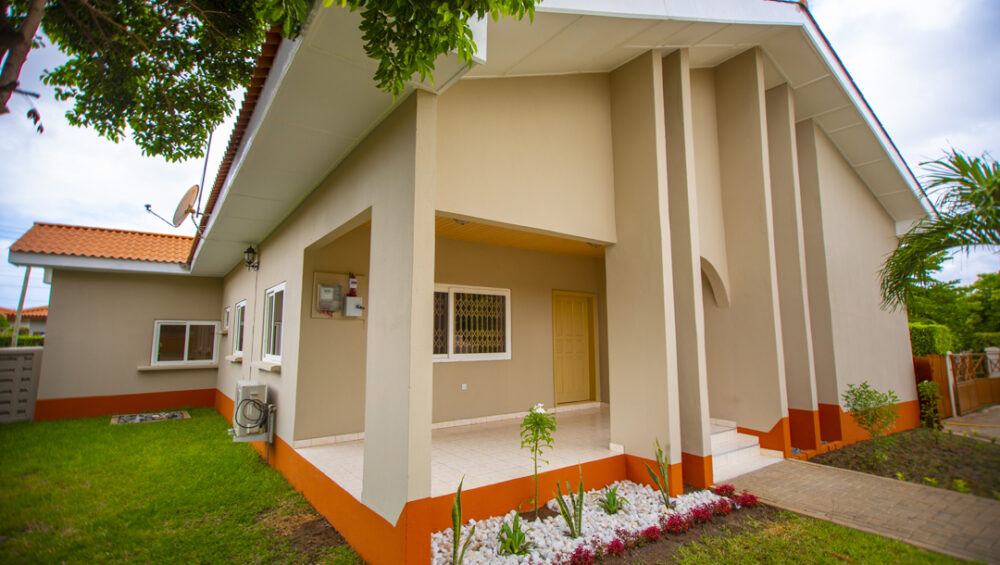

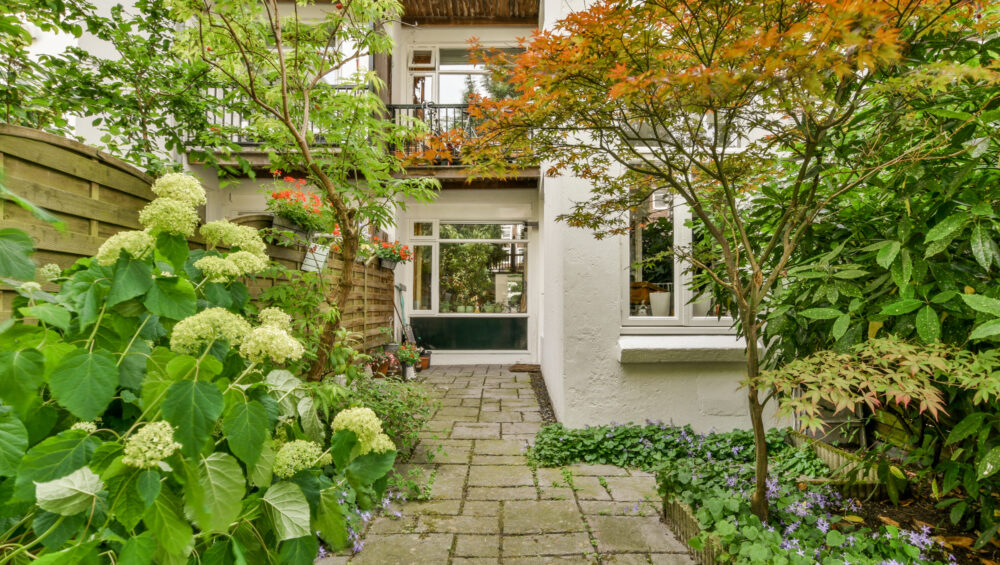


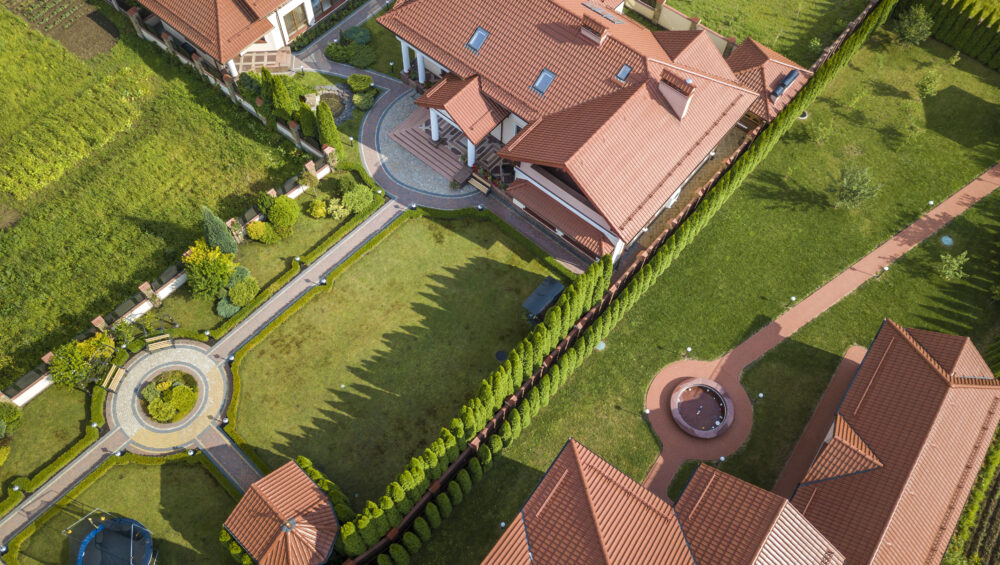
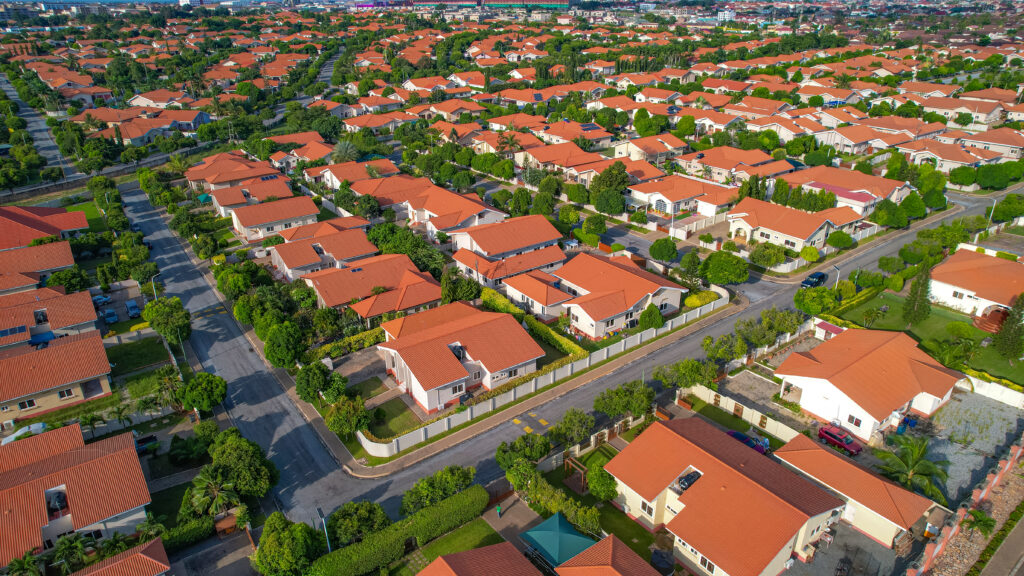

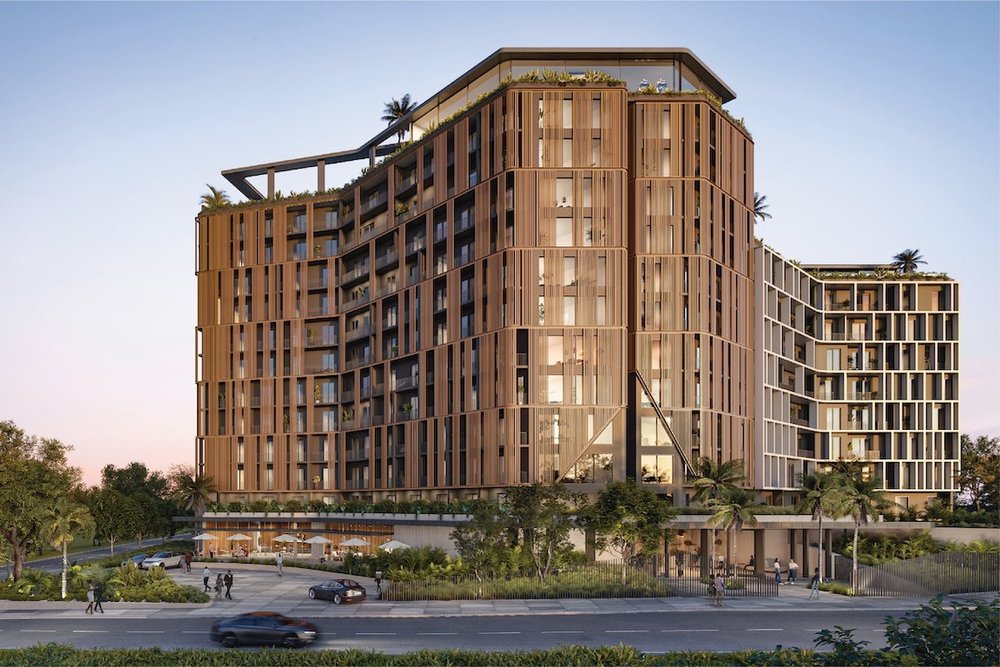


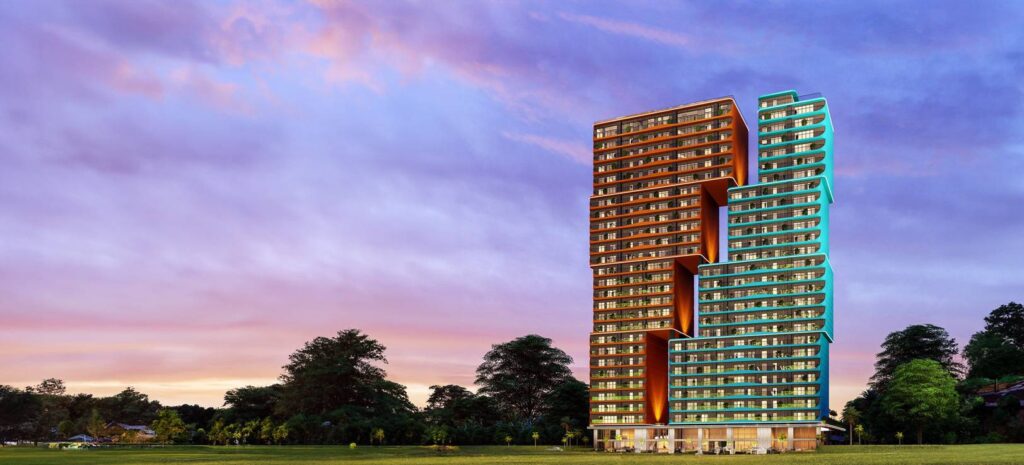 Set within two towers, Selton Skye is set to be the tallest housing development in Ghana yet.
Set within two towers, Selton Skye is set to be the tallest housing development in Ghana yet.

